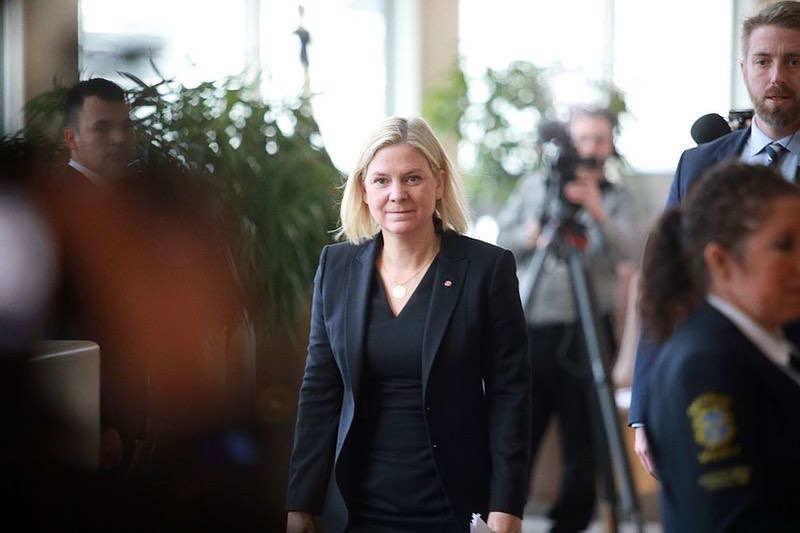Magdalena Anderson, the first prime minister of Sweden has offered her resignation house after her appointment to the office.
On Wednesday, Magdalena was appointed as the PM but she resigned after her coalition partner left the government. Also, the failure of the passing of her budget was another reason behind her resignation.
Instead, the opposition-constructed budget that includes anti-immigrant far-right policies was passed.
“I have expressed my desire to leave the position to the speaker,” Ms Andersson said.
The Green Party, which was part of her administration’s coalition, refused to accept the budget “written for the first time with the far-right.”
Ms Anderson also stated that if she were to stand alone as the leader of a single-party government, she would seek to reclaim the position of prime minister.
“A coalition government must resign when one of the parties leaves,” the Social Democrat said on Wednesday.
I refuse to be a leader of a government whose legitimacy will be challenged.
After a hundred years, the 54-year-old Social Democrat leader was given a standing ovation by parts of the parliament, or Riksdag.
She was elected as Sweden’s first woman prime minister after making an 11-hour deal with the opposition left the party, in return for increased pensions for many Swedes.
The support of her coalition partner, the Greens, was also secured. Out of the 349 members of Sweden’s Parliament, 174 voted against her.
However, on top of the 117 MPs who supported Ms Andersson, a further 57 abstained, giving her victory by a single vote.
She began her political career in 1996, serving as a political adviser to then-Prime Minister Goran Persson. She has been the Minister for Finance for the past seven years.
Sweden was the only Nordic country to never have a woman as prime minister before MPs elected Magdalena Andersson.
Magdalena Andersson’s becoming Sweden’s first female prime minister should have been a cause for a night of celebration, but the sun had only set when she quit her job.
The intricacies of Swedish politics guarantee that we haven’t seen the last of her, however. Ms Andersson is expected to be re-elected as prime minister if a general election is held.
This is because the Green Party has promised to back her, despite being a formal coalition partner.
But under the circumstances, she’d wind up in a defenseless position at the helm of a fragile coalition government, and she’d still have to follow through on the parliamentary right-wing budget that had already passed.
What the present political turmoil has highlighted is how deeply divided Swedish politics presently is. At the next election, we’ll have to see whether voters break the stalemate with a big shift to the right or left.











